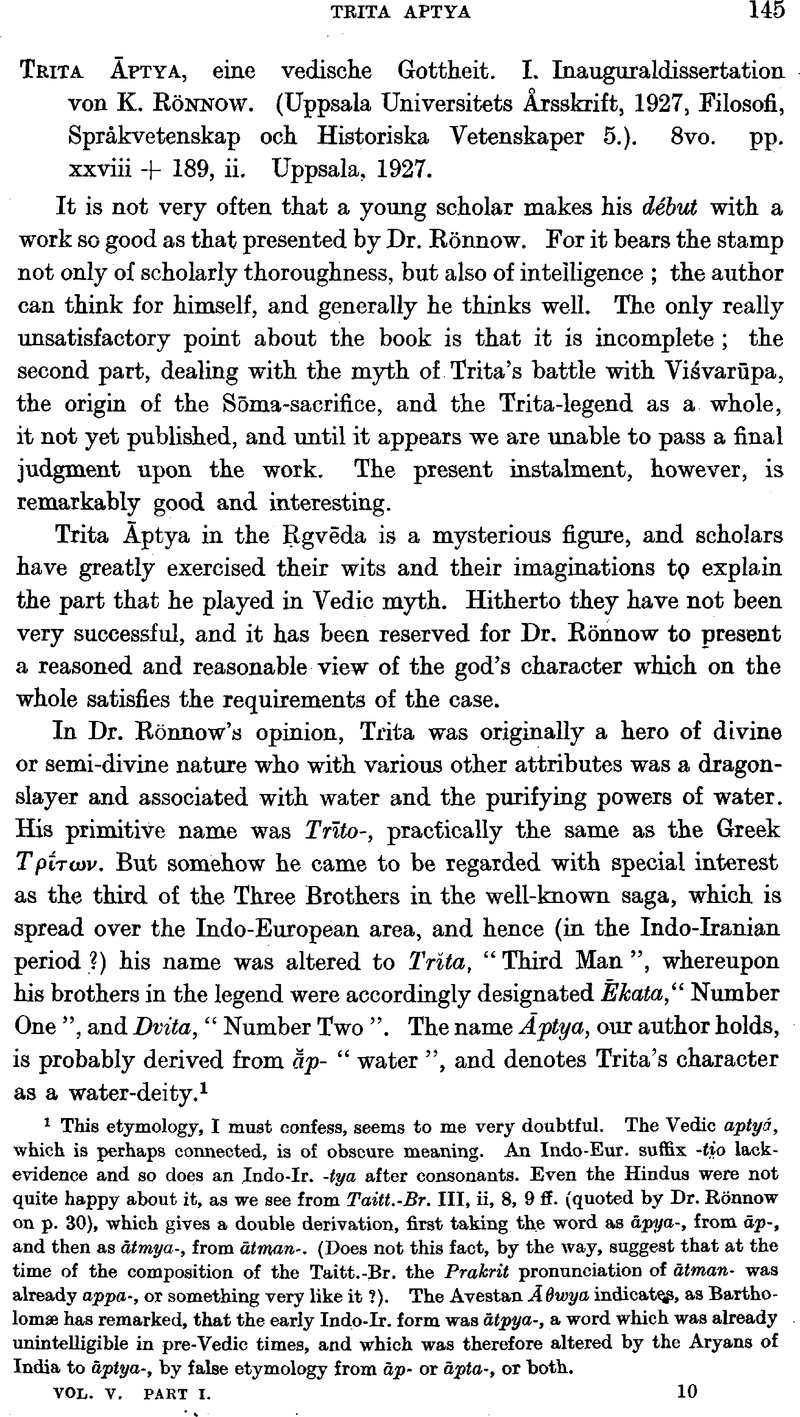No CrossRef data available.
Article contents
Trita ptya, eine vedische Gottheit. I. Inauguraldissertation von K. Rnnow. (Uppsala Universitets rsskrift, 1927, Filosofi, Sprkvetenskap och Historiska Vetenskaper 5.). 8vo. pp. xxviii + 189, 2. Uppsala, 1927.
Published online by Cambridge University Press: 24 December 2009
Abstract

- Type
- Reviews of Books
- Information
- Bulletin of the School of Oriental and African Studies , Volume 5 , Issue 1 , February 1928 , pp. 145 - 148
- Copyright
- Copyright School of Oriental and African Studies 1928
References
page 145 note 1 This etymology, I must confess, seems to me very doubtful. The Vedic apty, which is perhaps connected, is of obscure meaning. An Indo-Eur. suffix -tio lack-evidence and so does an Indo-Ir. -tya after consonants. Even the Hindus were not quite happy about it, as we see from Taitt.-Br. 3, 2, 8, 9 ff. (quoted by Rnnow, Dr. on p. 30)Google Scholar, which gives a double derivation, first taking the word as pya-, from p-, and then as tmya-, from tman-. (Does not this fact, by the way, suggest that at the time of the composition of the Taitt.-Br. the Prakrit pronunciation of tman- was already appa-, or something very like it ?). The Avestan wya indicates, as Bartholom has remarked, that the early Indo-Ir. form was tpya-, a word which was already unintelligible in pre-Vedic times, and which was therefore altered by the Aryans of India to ptya-, by false etymology from p- or pta-, or both.
page 146 note 1 It is worth pointing in this connection to the remarkable Varun nga-rj, J.P.T.S., 1885, p. 14.Google Scholar




